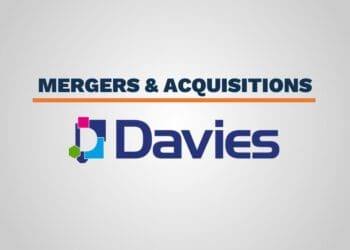Last year was an active year for mergers and acquisitions activity, especially cross-border M&A activity. And no kind of M&A activity received more attention in 2014 as corporate inversion, the practice of reincorporating an American business in a different country by merging with a smaller overseas entity, often to take advantage of lower tax rates. Inversion activity picked up especially over the summer as American firms raced to get in their mergers before an anticipated US crackdown. The crackdown came in September, when the Treasury Department issued new rules to stamp out the practice.
Now, executives who raced to the finish line in time will have to manage the integration of their firms with new overseas acquisitions. At any firm heading toward a merger, acquisition, or divestment, executives tend to maintain a laser-like focus on the deal itself. But especially when deals occur across multiple jurisdictions, there’s a mountain of operational and compliance details to plan for, particularly in human resources. Since many of the final inversions were conducted at break-neck pace to beat the regulators, there’s a high risk of botching the HR integration.
So it’s worth reviewing the potential HR complications of such deals, which also have relevance to all cross-border mergers and acquisitions. For example, you never want to find out on the eve of a major deal that your plans for workforce reductions at the foreign firm you’re buying conflict with local labor law.
There are little things to plan for: Will a change in company name or location affect the visa status of any expat employees? And there are much bigger things: The EU has strict TUPE — Transfer of Undertakings (Protection of Employment) — laws to ensure that workers retain their employment rights when they’re transferred to a new employer. Compliance with these rules requires close consultation with employees and union representatives on both sides of a deal.
Especially in the case of recent corporate inversions, American HR departments often inherited large European workforces. In the US, there is no minimum number of paid vacation days mandated for employees. For US private sector employees, the average number of annual paid vacation days is 10. In popular inversion destinations, that number won’t cut it. Excluding public holidays, the Netherlands, Ireland and the UK mandate 20 paid vacation days. It’s also likely that in other categories of paid time off, like sick leave and maternity leave, the policies at American firms won’t be up to the requirements of the foreign countries where you inherit employees. But this issue is in no way particular to inversion deals: Almost anywhere in the world you’re acquiring workforce, you’ll find higher requirements for paid time off – as well as strict obligations to track and record such time off – than exist in the US.
You won’t just have to understand the local laws in the destinations where you’ve acquired new employees. After a merger or acquisition, it will also fall to HR departments to ensure compliance with laws from their home country that apply globally to their firms’ operations. For example, whether or not an American firm moves its headquarters overseas, any business with operations in the US has to comply globally with the Foreign Corrupt Practices Act. Implementing a compliant anti-bribery policy will be crucial when picking up employees in countries where bribery might be considered just another part of doing businesses. American firms will also have to implement globally the whistleblower protections mandated by Sarbanes-Oxley.
To complete the task, we recommend that firms heading toward a merger or acquisition create an HR audit team charged with mapping out the compliance needs of the new entity and then ensuring they’ve been implemented after the deal, a complex process that you may need help with.
As a final note, remember that in managing so many compliance details, it’s easy to lose sight of the question of workforce compatibility, something that even the most thorough audit can’t ensure. The culture clash between the management of German automaker Daimler AG and that of the American firm Chrysler, unanticipated by senior executives, famously contributed to the failure of DaimlerChrysler — and workplace differences across cultures remain real in 2014.
But if you do successfully plan and execute around an international deal, the payoff can be enormous. We should know: Radius was born this spring out of a merger between the US firm High Street Partners and UK-headquartered Nair & Co.



 Boston-based Katie Davies oversees Radius’ advisory client engagements across five continents. Expert in a wide variety of cross-border issues including HR, Tax, IP and immigration consulting, Katie provides hands-on client services to many of the firm’s accounts with operations in Europe. Prior to joining Radius, Katie served as Finance Director and Operating Officer of The Beanstalk Group, an international leader in brand licensing and joint venture of The Ford Motor Company. In the group’s London office, Katie led internal operations ranging from finance and legal functions to human resources and company administration. She was previously a Senior Manager at PricewaterhouseCoopers in their London office where she developed and implemented clients’ overseas expansion programs through a worldwide network of internal PwC advisors and external independent local service providers. Katie received an MA from Cambridge University.
Boston-based Katie Davies oversees Radius’ advisory client engagements across five continents. Expert in a wide variety of cross-border issues including HR, Tax, IP and immigration consulting, Katie provides hands-on client services to many of the firm’s accounts with operations in Europe. Prior to joining Radius, Katie served as Finance Director and Operating Officer of The Beanstalk Group, an international leader in brand licensing and joint venture of The Ford Motor Company. In the group’s London office, Katie led internal operations ranging from finance and legal functions to human resources and company administration. She was previously a Senior Manager at PricewaterhouseCoopers in their London office where she developed and implemented clients’ overseas expansion programs through a worldwide network of internal PwC advisors and external independent local service providers. Katie received an MA from Cambridge University.










